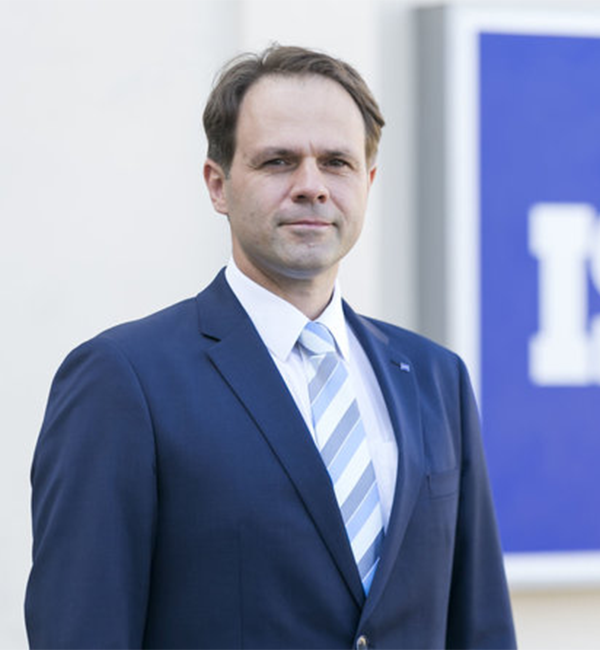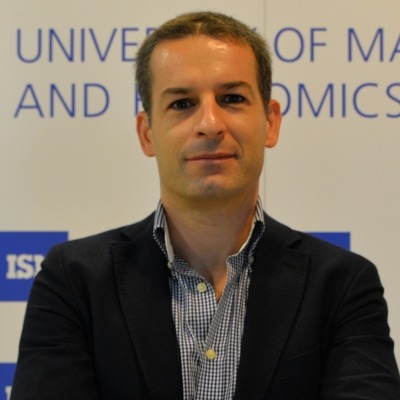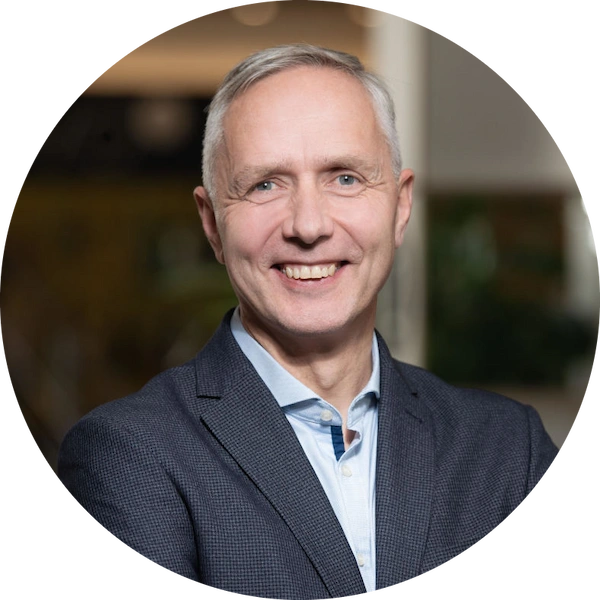The program takes place: July 1-18, 2024
In Summer 2024 ISM Summer University in the Baltics program will be delivered on-campus at ISM University of Management and Economnics, Vilnius, Lithuania. Some classes of certain courses might be arranged online in a remote mode via MS Teams platform, however the exams will take place in a classroom.
Spend three weeks of your summer studying at one of the best business universities in the Baltic countries. Whether you are a graduate or undergraduate, enroll in the ISM Summer University and enjoy your time studying. ISM Summer University in the Baltics will take place from July 1st to July 18th, 2024.
Why ISM Summer University?
The ISM Summer University in the Baltics will enable students to study during the best time of the year in one the fastest changing regions of Europe:
- ISM has been ranked among the world’s 200 top business schools by EDUNIVERSAL
- Four out of five palms give ISM the leading position in Lithuania and ranks it among the best business schools in Central and Eastern Europe
- World-class faculty from well-acknowledged European and USA universities
- The ISM Summer University has already attracted more than 400 students coming from Europe, Asia, Australia and the USA
Courses
The following courses are suggested for the ISM Summer University in the Baltics 2024.
Each course will be lectured in English and take place in the morning or in the afternoon session (4 times a week – 3 weeks long). The examination will take place on the last day of the course. Each student can select one or two or even three courses based on the number of courses offered. If a course will not be selected by a minimum number of 15 students, it will not be delivered during the program and the students who have initially selected such a course will be offered an opportunity to choose from remaining courses.
E-Commerce (6 ECTS)
This course provides a balanced analysis of e-commerce theory and business strategies. The first half of the course focuses on e-commerce models and their applicability in practice. Second half of the course aims to investigate how businesses are using e-commerce tools to achieve success. Students will be encouraged to apply newly developed skills to develop individual or team projects. The course is intended to provide knowledge for students to discuss critical issues that determine the success of e-commerce projects. Students will be able to identify different e-commerce models and apply them in practice. E-marketing and its effect on customers will be also touched during this course. Therefore by the end of the course students will be able to come up with ideas and initiatives to better plan, develop, manage and operate effective and efficient e-businesses.
Marketing Strategy (6 ECTS)
This course provides an in-depth exploration of the principles and practices of marketing strategy through an array of case studies, that illuminate the intricacies of strategic decision-making. It covers the key components of strategic analysis, formulation, and implementation, with a focus on product, distribution, pricing, and promotional strategies incorporating a discerning international perspective. The course also examines emerging trends that impact the field of marketing strategy.
Low-Code Solutions for Business Analytics (6 ECTS)
The overall objective of this course is to introduce students to a software suite that aggregates cloud based business analytics, app development, and low-code software solutions in order to equip them with practical knowledge of business oriented mobile application development, processes automation, virtual agents and preparation of business reporting.
The course is aimed to develop skills in business analytics as well as to gain certain competences how to employ low-code software tools for business intelligence. During the course students will explore low-coding solutions and databases: dataverse concepts, data storing solutions, basic app user interface development, they will learn how to develop certain applications: modifying forms, adding controls, displaying data, developing model driven apps, common data model integration. The course will include material on mobile asset tracking (e.g. integrate APIs, extract datasets from GPS, Barcodes and QR codes), automating processes, etc. During the course students will be introduced to such tools as PowerBI and other relevant software for business analytics.
International Negotiation (6 ECTS)
That we are living in a competitive world is nothing new. In an ever faster pacing business life, which becomes more and more globalized, we need to identify objectives, potentials and obstacles quickly and come up with strategies in a blink of an eye. This is key to successful negotiations and business relations. An even greater challenge is, that in today`s globalized business world we have to deal with partners from different countries and cultures, all with unique features that play an important role in the process and outcome of communication and negotiation.
The course is designed to give insights which are practical and immediately applicable in business life. The course combines the essentials of negotiating theory with a very practical approach. Central to the course are simulated commercial negotiations and practices. The coursework will involve: defining the issues to be negotiated, preparing for negotiations, using different styles, methods and tactics of negotiations, increasing the awareness of psychological and ethical aspects in the negotiation process and paying attention to the importance of cross-cultural factors. Extensive analysis and coaching, both in negotiating groups and in the plenary sessions will follow each negotiation.
Faculty
Fees
| Students from partner institutions. Till 1 March, 2024 | Students from other institutions. Early bird fee. Till 1 March, 2024 | Students from other institutions. Regular fee. From 1 March till 2 April, 2024 | |
| Fee for one course (6 ECTS) | 480 EUR | 640 EUR | 720 EUR |
| Fee for 2 courses (12 ECTS) | 900 EUR | 1100 EUR | 1440 EUR |
| Fee for 3 courses (18 ECTS) | 1300 EUR | 1500 EUR | 2160 EUR |
| ACCOMODATION AND SERVICE PACKAGE | 950 EUR | 950 EUR | 950 EUR |
| SERVICE PACKAGE | 450 EUR | 450 EUR | 450 EUR |
Besides covering a Tuition Fee, you may decide to purchase Accommodation and Service Package that includes accommodation at Corner Hotel (https://cornerhotel.lt/en/) or similar for the period from June 30th,m 2024 till July 19, 2024. It also covers a two-day weekend trip to Palanga – a town on the Baltic Seaside. Accommodation and Service Package includes one meal lunch on Campus, on the lecture days (Monday-Thursday) and Farewell reception.
Alternatively, you may arrange your own accommodation in Vilnius by covering a tuition fee and a Service Package only – then you have to book the accommodation yourself at your own account. Service Package includes lunch on lecture days (Monday-Thursday), a two-day weekend trip to the seaside as well as Farewell reception.
Vilnius and Lithuania in short
- Lithuania is among top 40 countries in the world for the quality of life
- Lithuania has been ranked 11th in the World Bank’s Doing Business 2020 report. You can set up a business here in one day
- Lithuania has been ranked 1st in CEE for university-business collaboration in R&D (Global Competitiveness Report 2017-2018)
- Vilnius is famous for its green spaces and cool vibe. It has been ranked by the New York Times alongside Copenhagen, Barcelona and Capetown as a hip and well managed place to live
- Vilnius has been ranked as Nr. 1 city in Tech Startups in the FDI Attraction Index by Financial Times
Application process
- Fill in the online APPLICATION FORM.
- Send Transcript of Records (electronic or scanned version of certificate with your courses attended and the grades obtained at home university)* to summeruniversity@ism.lt
- All the information about your application along with the admission confirmation will be sent to you by the 15th of May, 2024.
- You may be asked to confirm your participation by paying relevant fees in 2 weeks time after your registration. Final payment deadline: April 2nd, 2024. After the 2nd of April, 2024, a 150 EUR late payment fee could be applied. Should you decide to cancel your participation after paying the fee, it might not be refunded and/or refunding charges will be applied. If you decide to cancel your participation after April 2nd, 2024 a refunding charge of 100 EUR per course is applied. If you decide to cancel your participation after May 31st, 2024, no fees will be refunded.
- The transfer should be made to ISM University of Management and Economics account:
ISM University of Management and Economics, UAB Gedimino av. 7, Vilnius LT-01103 Lithuania Company code 111963319 Company VAT code LT119633113 Luminor bank AS Lithuanian branch Bank code 40100 SWIFT AGBLLT2X Settlement account LT57 4010 0495 0043 6891
* Please note that we need to have all the required documentation before the 2nd of April, 2024.
Contacts





